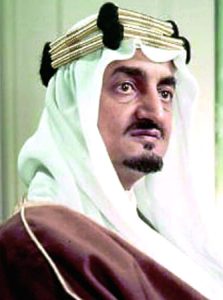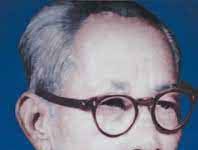King Faisal bin Abdulaziz | Brief Biography
King Faisal bin Abdulaziz
King Faisal bin Abdulaziz Al Saud was the King of Saudi Arabia from 1964 to 1975. He was born in Riyadh, Saudi Arabia on April 1906 and was the third son of King Abdulaziz Al Saud, the founder of the modern Kingdom of Saudi Arabia.
King Faisal received his education in religion and politics from his father and was appointed governor of the Hijaz region at a young age. He held several other important positions in the government, including Minister of Education and Minister of Interior, before being named Crown Prince in 1962.
King Faisal bin Abdulaziz‘s reign was characterized by modernization and reform. He implemented several policies aimed at modernizing the country and improving the lives of its citizens. Under his leadership, the first television station in the Arab world was established, the country’s first university was founded, and the first airport in the country was built. He also implemented several economic reforms, including the establishment of the national oil company, Aramco.
King Faisal was known for his strict adherence to Islam and was seen as a religious and political leader not only in Saudi Arabia but also in the wider Muslim world. He was a strong supporter of the Islamic cause and was instrumental in the establishment of the Organization of the Islamic Conference, an international organization of Muslim countries.
King Faisal was also known for his support of the Arab-Israeli conflict and was a vocal advocate for the rights of the Palestinian people. He supported the creation of the Palestinian Liberation Organization and was a key figure in the Arab-Israeli conflict during the 1970s.
King Faisal was assassinated on March 25, 1975 by his own nephew, Faisal bin Musaid. His death was a shock to the country and the world and sparked a period of mourning in Saudi Arabia. 0 0 0.
Sources:
“King Faisal bin Abdulaziz Al Saud: A Biography” by David E. Long
“The Political and Economic Development of Saudi Arabia” by Gerd Nonneman
“The History of Saudi Arabia” by Alexei Vassiliev
“The Modern History of Saudi Arabia” by Willard A. Beling
“King Faisal of Saudi Arabia” by Robert Lacey
“Encyclopedia of the Modern Middle East and North Africa” edited by Philip Mattar
Official website of the Royal Embassy of Saudi Arabia in Washington, D.C.
Official website of the Ministry of Foreign Affairs of Saudi Arabia. ***
N.B. The article originally belongs to the book ‘Brief Biographies of Eminent Monarchs‘ by Menonim Menonimus.
Books of Biography by M. Menonimus:
- The World Writers-Brief Biographies
- Introduction to World Writers
- Introduction to World Personalities
- Love of Reputed Persons
- Brief Biographies of Ancient Thinkers and Writers..
Additional Searches:
- Famous Kings and Queens
- Living Biographies of Famous Rulers
- Biography of Elizabeth II
- Most Famous Kings in History











